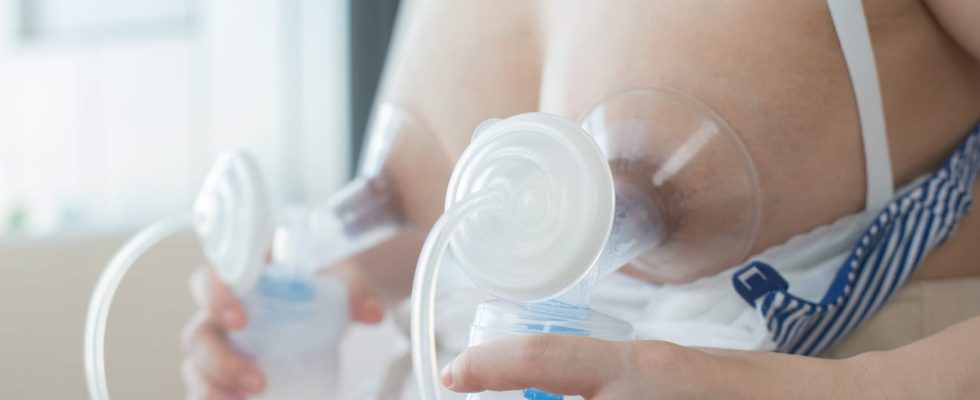The Ministry of Health has launched a national appeal for donations of breast milk to help premature babies in the DROM-COM. How to donate your milk to a milk center? Insights with Professor Jean-Charles Picaud, president of the lactariums of France and Europe.
Nicknamed white gold, breastmilk is vital for many premature babies. Every year, women donate their milk to one of the 33 milk centers, spread across the entire French territory. In 2018, the breast milk banks have collected “44,600 liters of milk from anonymous donations”, indicates the Association of Lactariums of France (ADLF). These specialized establishments are therefore essential for collecting, processing, preserving, distributing donations and also advising young mothers. One of them, the Marmande lactarium, will move in June 2024 to Bordeaux, which will stop donations of breast milk for several months, particularly to overseas departments and regions (DROM-COM) . To anticipate this shutdown, the Ministry of Health called on February 14 for a “national mobilization” to obtain a substantial stock of breast milk. But how do you give your breast milk and how does it work?
After contacting the teams at a milk supply center near you, often in a hospital center, the donor must first answer a series of questions about her lifestyle habits (tobacco, transfusion, medications, etc.), which could be a contraindication to donation. A serology is also carried out. Once these two steps have been validated by the lactarium doctor, the young mother can express and give her milk directly in the establishment or at home if she lives far away. All the necessary equipment (breast pump, baby bottles, etc.) is then provided. It is then important to store your breast milk well.
What checks are carried out within the lactarium?
Once the milk has been collected, two bacteriological checks are realized within the lactarium. The first bacteriological control allows check for germs in breast milk. If there is little or none, the milk is then pasteurized. On the other hand, if the quantity of germs exceeds a certain threshold, the milk is immediately eliminated.
The second check takes place before the milk is distributed. It also consists of the germ search. If the control is positive, the milk is destroyed. “You should know that there is little risk of contamination of milk in lactariums, the germs generally come from the environment, when the milk is expressed. It is enough to remind the mother of the hygiene rules to that the contamination rate decreases during the second donation”explains Professor Picaud.
Who are the donors?
It exists two types of breast milk donation. Both are based on an anonymous and voluntary approach.
- THE personalized gift concerns young breastfeeding mothers who donate their milk for their own premature child.
- THE anonymous donation which consists of donating milk so that it can be redistributed to other children.
In the majority of cases, “breast milk donations are made by women who gave birth prematurely and who have plenty of milk. They have a stock of bottles available for their baby which is not always fully used. They then choose to donate these unused baby bottles“, underlines Professor Picaud. Less often, the donors are women who give birth at term and who have too much milk.
What are the benefits of donating milk for premature babies?
Breast milk stored in lactariums is “mainly intended for premature babies weighing less than 1.5 kg“, explains the specialist. “All other premature children who cannot have milk from their mother can also benefit from it depending on available stocks“, he adds.
These milk donations are beneficial on several points for the child: there is “both nutritional and immunological benefits in premature babies“, assures Professor Picaud. Breast milk reduces the risk of enterocolitis and eye complications in premature babies. “The more milk we give to a premature child, the fewer infections they will have. It even appears that these children have better cognitive development compared to premature babies who did not receive breast milk”assures the expert.
Thanks to Professor Jean-Charles Picaud, head of neonatal and neonatal intensive care services at the Croix Rousse hospital in Lyon and president of the lactariums of France and Europe.
